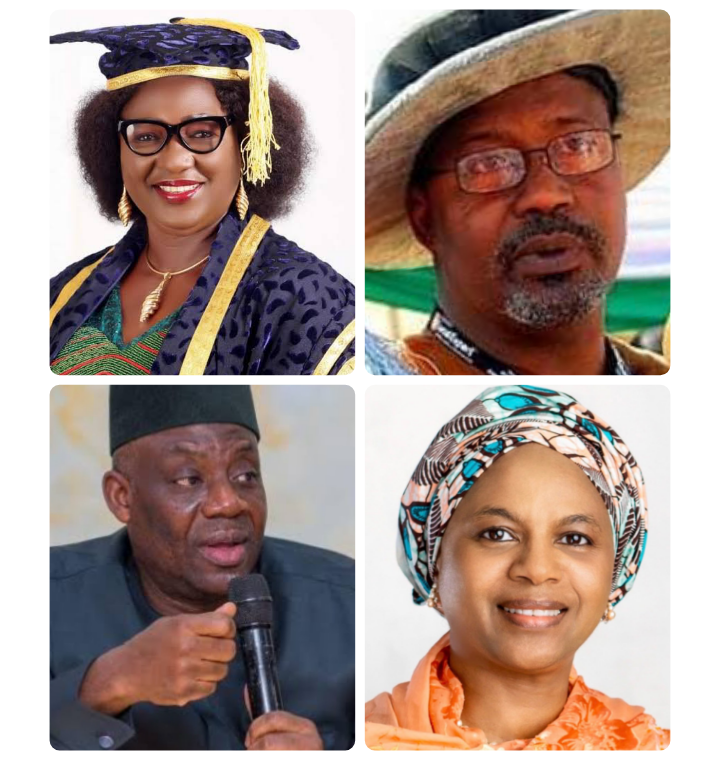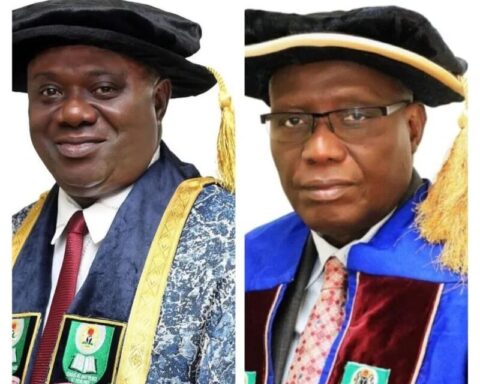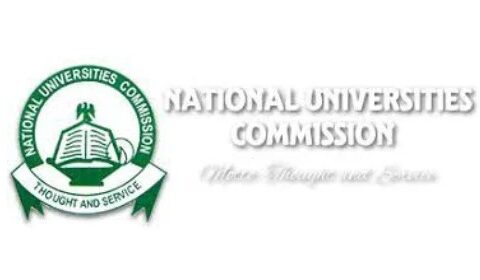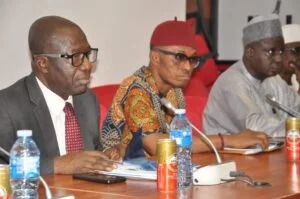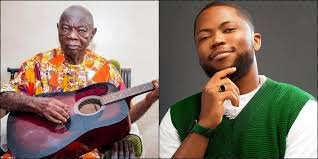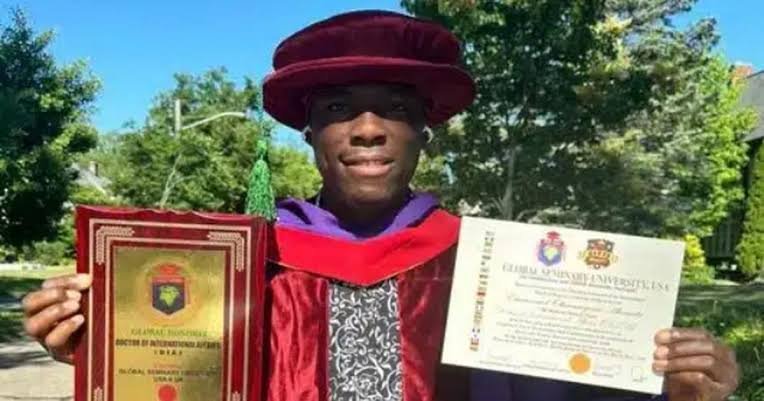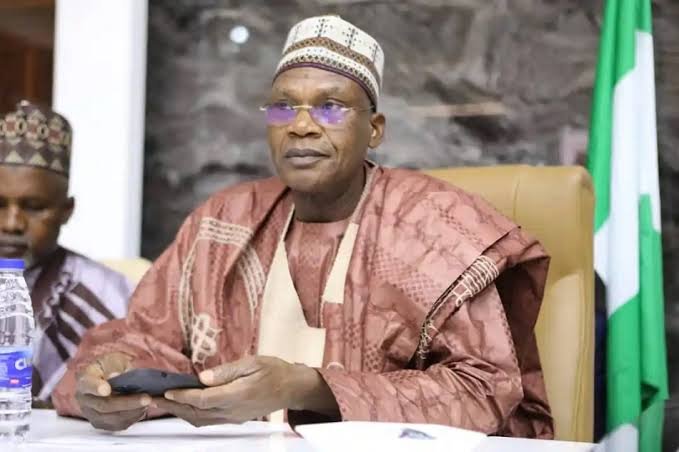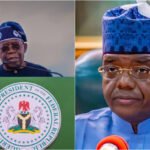The National Universities Commission (NUC), Nigeria’s regulatory authority for university education, has clarified that the University of Calabar (UNICAL) did not breach any regulatory provision warranting sanctions, contrary to claims by the Medical and Dental Council of Nigeria (MDCN).
Speaking at the July edition of the monthly dialogue organized by the Education Writers’ Association of Nigeria (EWAN), Nte Bisong, Deputy Director of Academic Planning and Head of Resources and Strategic Planning at NUC, said that NUC not professional bodies is constitutionally empowered to accredit university programmes and allocate admission quotas.
Bisong represented the NUC Executive Secretary at the event. In his remarks, EWAN Chairman and session moderator, Mojeed Alabi, noted that key stakeholders, including the Director of University Education at the Federal Ministry of Education, Rakiya Iliyasu; MDCN Registrar, Dr. Fatimah Kyari; and UNICAL Vice-Chancellor, Prof. Florence Obi, were invited but failed to attend or send apologies.
UNICAL’s Quota Crisis
The fate of about 300 UNICAL dental students remains uncertain following allegations that the university has exceeded its MDCN-approved admission quota. The MDCN reportedly permits only 10 students per year under a provisional accreditation, while UNICAL allegedly admits up to 90.
While UNICAL Vice-Chancellor, Prof. Obi, has stated that the issue predates her administration and began around the 2013/2014 academic session, MDCN Governing Board Chairman, Prof. Afolabi Lesi of the University of Lagos College of Medicine, condemned the university’s actions as a “serious breach.”
At the EWAN event, however, Mr. Bisong reiterated that the issue lies between MDCN and UNICAL not the NUC.
NUC’s Position on the Matter
Bisong explained that the dental programme, originally a department within the Faculty of Medicine, evolved into a full Faculty of Dentistry around 2015, leading to increased student intake due to expanded capacity. He clarified that NUC has no issue with the programme.
“The repositioning of the dentistry programme in UNICAL is not a matter before the NUC. As far as NUC is concerned, there is no regulatory breach,” he said.
Bisong disclosed that the Minister of Education, Dr. Tunji Alausa, a medical practitioner, has intervened, convening meetings involving NUC, MDCN, and UNICAL management to resolve the impasse.
“Because the minister is involved, two meetings have already been held. Something constructive will come from them,” Bisong added.
Regulatory Overlap
The controversy highlights an ongoing regulatory turf war between NUC and professional bodies like MDCN. Under the Medical and Dental Practitioners Act (CAP M8, 2004), MDCN is empowered to set standards for medical and dental training. On the other hand, NUC derives its mandate to accredit programmes and set academic standards from the Education (National Minimum Standards and Establishment of Institutions) Act (CAP E3, 1993).
NUC argues that programme accreditation and student quota allocation fall strictly within its purview.
Quoting the law, Bisong noted:“The power to lay down minimum standards for all universities and the accreditation of their degrees… is hereby vested in the NUC.”
To curb overlapping mandates, Bisong said the education minister issued a circular on May 9, titled “Stoppage of Multiple Accreditations by Professional Bodies in Nigerian Universities,” directing that no professional body may visit or accredit any university programme without NUC’s knowledge.
“If MDCN had informed us of their visit to UNICAL, we would have provided guidance. We understand the university terrain better,” he said.
Bisong stressed that professional bodies such as MDCN, the Council of Legal Education (CLE), and COREN do not have the legal mandate to allocate student quotas. Instead, they should focus on certifying graduates at the point of professional practice.
“You cannot give what you do not own. NUC establishes and approves academic programmes. It is not ideal for a professional body to dictate admission quotas,” he added.
Legislative Gaps and Legal Conflicts
Bisong pointed out that several professional bodies secure laws from the National or State Assemblies that allow them to independently accredit programmes, often without NUC’s knowledge or input during public hearings.
“This results in legal contradictions. However, constitutional provisions empowering NUC override any conflicting statutory laws. Our powers are embedded in the 1999 Constitution (as amended), and as such, they supersede those of professional bodies,” he said.
NUC’s Quota Allocation Process
According to Bisong, once a programme is verified and approved by NUC, it is allotted a default admission quota of 50 students, irrespective of the institution’s ownership. He criticized MDCN’s restriction of some programmes to only 10 students despite available facilities.
“We assess human and material resources before granting approval. If a university has the facilities, why restrict them to 10 students?”he stated.
He highlighted the issue of access to university education, stating that although over two million students sit for UTME annually, only about 500,000 gain admission.
“We balance access and quality. But professional bodies often overlook this broader mandate,” he said.
Professional Body Accountability
Bisong challenged professional bodies to explain their lack of involvement in the regulation of foreign degree programmes.
“Nigerians who study abroad are inducted into their professions after passing local qualifying exams. Were these foreign curricula subject to MDCN or CLE oversight? ” he asked.
He argued that if such bodies cannot influence curricula abroad, they should refrain from imposing restrictions at home.
“If graduates consistently fail professional exams, then MDCN can question the programme. But our graduates often excel internationally, proving the strength of our education system.”he added.
On the Proliferation of Universities
Responding to concerns about the rising number of universities, Bisong clarified that NUC does not establish institutions but merely ensures that approved universities meet basic academic and infrastructural requirements.
“The Federal Executive Council, chaired by the President, approves university establishments. NUC only accredits programmes and ensures capacity is in place.”he stated.
Former Education Minister Speaks
Participating virtually from Atlanta, former Minister of Education, Prof. Chinwe Obaji, criticized universities for exceeding their carrying capacities.
“If your facilities can only accommodate 50 students, why admit more? This compromises quality and sets students up for failure during clinical training,” she said.
She emphasized that professional conflicts should not come at the expense of student futures.
A Call for Collaboration
Bisong called for synergy between government agencies and professional bodies.
“Professional bodies should stop allocating quotas. They don’t establish programmes or employ faculty. We welcome their input but they must work with NUC, not above it.”
“We are not diminishing their role. We are saying: lets define boundaries. MDCN must work with NUC, not the other way around.”he added.
